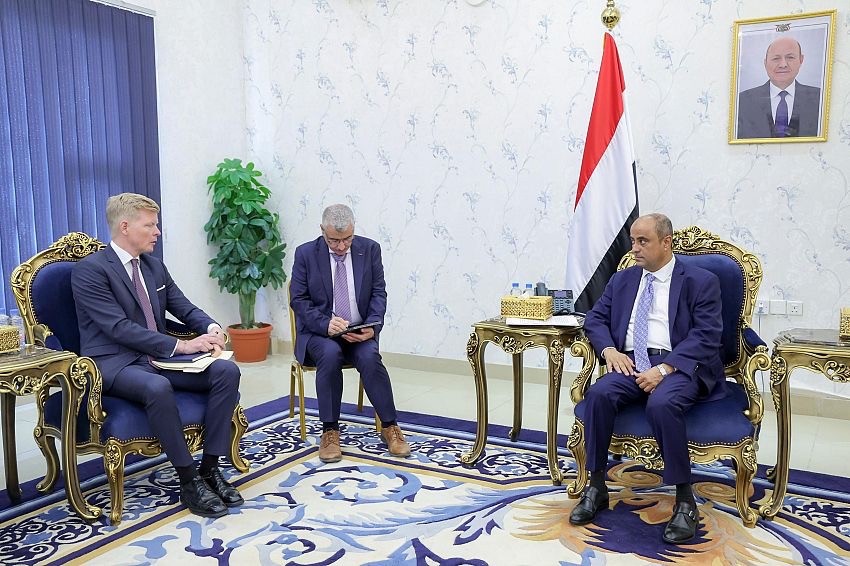
Barran Press - Monitoring Unit
Barran Press sheds light on key topics about Yemen in the Gulf and Arab press. Starting with "Al-Araby Al-Jadeed," which published a report titled "Yemeni Families Sell Gold to Meet Living Needs." The report detailed stories of Yemeni women who sold their gold and jewelry to cover household living expenses.
The newspaper reported that during the ten-year war in Yemen, hundreds of thousands of Yemeni women were forced to sell their jewelry and gold to cope with difficult living conditions, especially amid the interruption of employee salaries, lack of job opportunities, the decline in the purchasing value of the Yemeni riyal, and the skyrocketing prices of basic commodities.
The worsening living conditions are exacerbated by the declining salaries, their value against the dollar, and the exchange rate collapse. Salaries are disbursed in government-controlled areas, while in Houthi-controlled regions, 800,000 government employees have not received salaries since September 2016.
According to Yemen's wage regulations, a first-grade ministry official earns approximately 103.9 thousand riyals (about $50.62), while the lowest grades earn about 31.3 thousand riyals (about $15.28).
In Houthi-controlled areas, the price of a gold pound is 307 thousand riyals for buying and 312 thousand riyals for selling, while a gram of 21-carat gold is priced at 38 thousand riyals for buying and 40 thousand riyals for selling (1 USD = 534 Yemeni riyals in Houthi-controlled areas).
In government-controlled areas, a gold pound is priced at approximately 1.2 million riyals for buying and 1.22 million riyals for selling, while a gram of 21-carat gold is 151 thousand riyals for buying and 161 thousand riyals for selling (1 USD = approximately 2054 Yemeni riyals), according to the newspaper.
Fuel Imports to Hodeidah
Under the title "Fuel Imports to Hodeidah Decrease by 73% After Israeli Strikes," the Saudi newspaper "Asharq Al-Awsat" published a UN report from the World Food Program on the "State of Food Security" for December, stating that fuel imports through the Hodeidah port managed by the Houthis decreased by 73 percent from January to November 2024, compared to the same period the previous year.
According to the newspaper, UN data shows that Hodeidah port has not received any fuel shipments since the first Israeli attack in late July, except for a very limited amount in October.
With maritime sources in Hodeidah confirming the ongoing halt of operations at the three ports (Hodeidah, Salif, Ras Issa) since last week's Israeli strikes due to the destruction of ship towing boats, the World Food Program reported that all fuel imports reaching Houthi-controlled areas were via Salif and Ras Issa ports.
The UN program confirmed ongoing concerns about fuel stock levels in Houthi-controlled areas due to the destruction of storage infrastructure in Hodeidah and Ras Issa ports during the previous attacks, with Hodeidah port's storage capacity reduced from 150 to 50 thousand metric tons.
Gaza's Aftershocks
The UAE newspaper "Al-Ain" published an analytical report titled "Gaza's Aftershocks: A High Wave Threatens Houthis in Yemen," discussing the aftershocks of the "Flood of Al-Aqsa" operation threatening American interests in the Middle East.
In late 2023, a retired Israeli intelligence officer considered the Hamas attack on October 7 as an earthquake with aftershocks that the Middle East would deal with.
With the ceasefire in Lebanon and the potential for a ceasefire in Gaza, and the new Syrian administration focused on strengthening its country, the question now is whether the aftershocks are finally nearing their end, as reported by the American magazine "Foreign Policy."
According to "Foreign Policy," the campaign against the Houthis may not be as swift or spectacular as the eradication of Hezbollah, but the challenges do not mean that Israel will not try to achieve its goals against the Houthi militias in Yemen. Renewed strikes will also destroy much of the remaining dilapidated infrastructure in Yemen.
"Al-Ain" analysis added: "So far, Israeli raids have focused on Houthi-controlled ports in Hodeidah, Salif, and Ras Quntib, as well as Sana'a International Airport, in an attempt to cut off Iranian weapon supplies."
It continued: "Israel has also vowed to target Houthi leadership, a step that Tel Aviv and Washington have so far avoided."
If these efforts succeed, it may eventually reduce Houthi military capabilities even if they are not completely eradicated, according to "Foreign Policy."
Paralysis of Legitimacy and Houthi Mischief
"Independent Arabia" published an article by Yemeni diplomat Mustafa Al-Numan titled "Yemeni Confusion Between Paralysis and Mischief," asserting that "the Yemeni dilemma is the search for a straw to cling to."
In his article, the writer asserts that "Yemenis suffer from the paralysis of 'legitimacy' which bears full responsibility for pulling them out of the deep abyss. While people struggle to secure one meal a day, amid a complete collapse of service systems, the 'legitimacy' apparatus is busy resolving administrative disputes among senior officials."
The Yemeni diplomat said, "Yemenis are living through the darkest period in their history since the establishment of the republic in the north on September 26, 1962, and the independence of the south on November 30, 1967, despite the bloody conflicts they experienced afterward. The reason for this is the fragility of the leadership that emerged in 2011 and after," adding: "Subsequently, the geographical expanse scattered, and the country slipped into uncharted paths without constraints or mature leadership."
He continued: "Yemenis are bewildered and at the mercy of a mischievous party that does not realize the enormity of the dangers the country faces due to being plunged into a battle that no one can deny but at the same time is incapable of altering its course or making a meaningful contribution."
He went on to say: "The 'group' does not realize that all its capabilities will not save our people in Gaza, and here we see the extent of the daily destruction practiced by Israel without the world batting an eye. What the 'group' is doing will not change the balance of power nor stop the extermination of Palestinians, and more importantly, it provides a pretext for inflicting the greatest harm against anyone considering threatening Israel under the false guise of 'self-defense.'"
Significant Losses for Yemen
The Egyptian newspaper "Al-Ahram" quoted Dr. Ali Al-Sarari, the advisor to the Yemeni Prime Minister, stating that the current confrontations might not lead to a full-scale war. He explained that a comprehensive war would have erupted during the Israeli attack on Lebanon if Syria and Iran had entered the battle. However, this did not happen.
Al-Sarari added that the current events are merely skirmishes, and the Americans, British, and Israelis will continue to deal with Houthi missiles and drones without expanding the confrontation's scope.
According to the Egyptian newspaper, Al-Sarari emphasized that we might see more intense and extensive attacks, especially from the western side, particularly the United States. These attacks target military sites in Yemen, such as the Ministry of Defense, the Maintenance Corps, and the former headquarters of the First Thunderbolt Brigade, which are crucial military sites.
He mentioned that the Houthis no longer use these sites extensively, having prepared other shelters and locations to launch missiles and drones across various provinces.
In contrast, Al-Sarari confirmed that the Israelis target infrastructure in Yemen, such as ports, airports, and electricity, causing significant losses to the country.
Masam's Sacrifices
The Saudi newspapers "Okaz" and "Al Riyadh" reported a statement by Osama Al-Qusaibi, General Manager of the "Masam" Mine Clearance Project - Yemen, who said that in 2024, the project's engineering teams cleared 48,705 mines, unexploded ordnance, and explosive devices from various parts of Yemen. Since the project's launch in June 2018 until December 2024, a total of 476,432 mines, unexploded ordnance, and explosive devices have been cleared.
He highlighted that the area cleared in 2024 amounted to 10,107,967 square meters, bringing the total cleared area to 63,378,671 square meters since the project's inception until December 2024.
The "Masam" Mine Clearance Project continues its work in Yemen for the seventh consecutive year, focusing on clearing mines, destroying them, and training and building Yemeni capacities in this field, aiming to fully clear Yemeni lands of mines threatening civilians' lives.
Al-Qusaibi stated that "Masam" made unlimited sacrifices to restore Yemen's security, including martyrs from the "Masam" family, who were among the best personnel and experts dedicated to this noble goal. The project spares no effort in striving for a Yemen free of deadly explosive devices.





